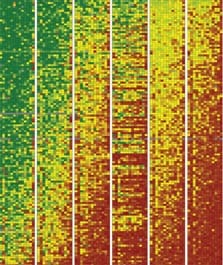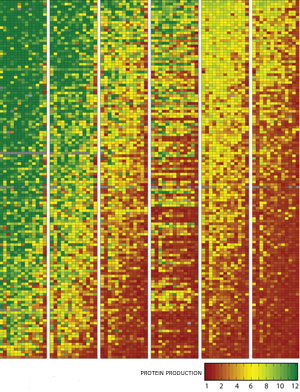Wyss Researchers Discover the Best Way to Express Synthetic Genes

Researchers at Wyss Institute might have found the solution to very synthetic biologist’s nightmare: bacteria disobeying commands to express genes of interest. In an incredible breakthrough for synthetic biology, it was observed that using more rare words, or codons at the start of the gene, gives a boost to the proteins these genes produce.
This finding could mean a boon for synthetic biologists, who have struggled in hacking bacteria to produce proteins for drugs or sugars for fuel. Up until now the results have been a series of hits and a misses, with a good deal of trial and error involved before a particular combination worked. However, with the unveiling of the genetic secret, reprogramming bacteria to produce excess quantities of a gene could become a simple process of cutting and pasting rare codons before the intended genes.
Proteins produced by bacteria are controlled by its genetic code. This genetic code first produces intermediate copies of itself in the form of mRNA which travels to the ribosomes from the nucleus, the site of protein production. The codons are set of three nucleotides representing 20 different amino acids, act as the building blocks of proteins. There are 61 codons for 20 amino acids, among these a few of them appear very rarely in the genetic code of an organism.
Researchers lead by Sriram Kosuri, George Church and Daniel Goodman at the Wyss Institute at Harvard, aided by next generation DNA sequencing and traditional DNA sequencing technologies, identified the genes that control the gene expression. Genes whose opening sequences begin with rare codons were seen to produce more proteins than those without. In their tests, genes represented with rare codons made 60 times more proteins than those without.
Further investigation into the rare codon effect on the gene expression lead researchers to conclude that the mRNA folding was responsible for the increase in proteins. More an RNA folds, the lesser it gets translated into a protein, therefore controlling the folding could increase or decrease the expression of genes. It just so happens that most rare codons reduce folding in the RNA, resulting in increased gene expression.
The work was funded by Wyss Institute, United States Department of Energy, Agilent Technologies, the Office of Naval Research and the NSF Graduate Research Fellowship to Goodman.
Source: Wyss Institute

